Keeping up to speed
Compared to other global cities famed for providing concrete canvases for internationally renowned and subversive graffiti artists, Beijing's nascent scene is in a constant state of flux. Not only are there few dedicated artists to the street art, there is also a general lack of interest among artists to deliver messages through their work.
"Graffiti has only been happening in Beijing since 2004, compared to the US where it has been active since the 1960s," said Lance Crayon, an American journalist and filmmaker who spent a year shooting his documentary Spray Paint Beijing in 2010.
"[China's graffiti scene] may not have the history, but to say it's not as sophisticated, at least aesthetically speaking, would be doing Chinese writers a disservice. Nowadays, they have the Internet and videos on [video sharing website] Youku and file sharing. They are very much up to speed in terms of style and skill," he said.
To the discerning eye, graffiti adorning walls at Beijing's 798 Art Zone is a heady mix of different styles. Norbert Kirbach, a German writer living in Beijing who is also a graffiti historian and researcher, points out that Chinese graffiti artists are making themselves more "international" by using Roman, rather than Chinese, characters in their work.
"It's normal to see a lot of Western influences in Chinese graffiti, particularly from the US West Coast," Norbach told Metro Beijing. "The use of old English and broken Gothic font are not only popular in China but all over Asia. Graffiti in China is growing in step with the confidence of local writers."
Shunning domestic elements
Finding graffiti in Beijing with distinctly Chinese elements is harder than many might imagine. Chen recalled that during the 2008 Beijing Olympic Games there was a surge in graffiti with local characteristics, as reflected in works done by the Kwanyin crew that mirrored traditional Chinese water paintings. Today, however, such graffiti styling has largely been discontinued.
"To say that [Chinese graffiti artists] are not interested in their culture and history is probably closer to the truth than writers would care to admit. Almost all the guys that I interviewed were apolitical," said Crayon. "I wouldn't be surprised if in a decade or so we see a wave of traditionalist graffiti that questions why writers are mimicking the West. That would be amazing to see."
【1】 【2】
Recommendations:
News we recommend



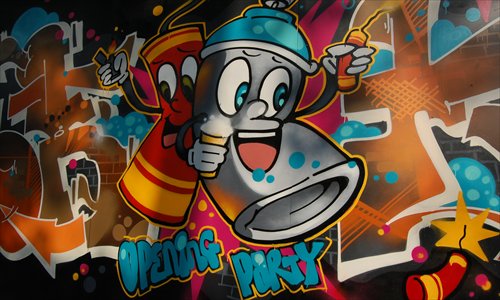














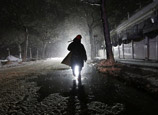
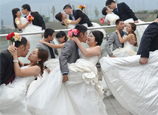

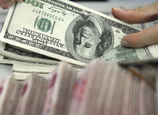
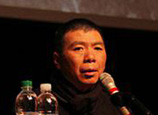
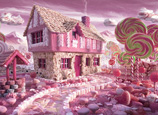








![]()
